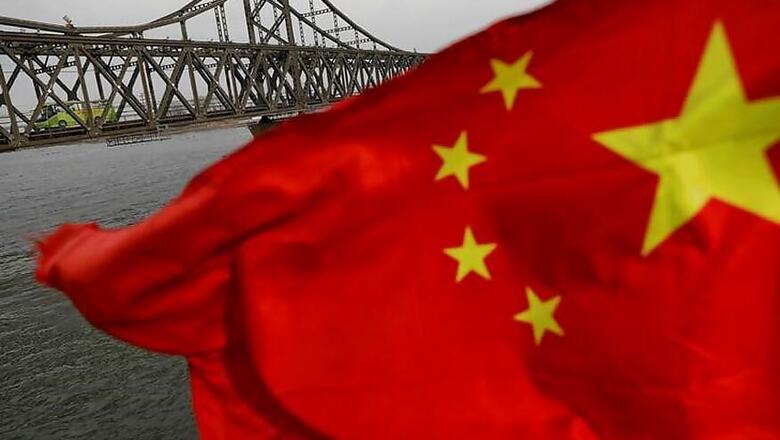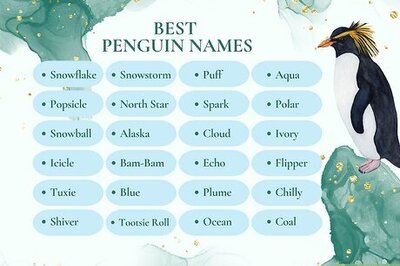
views
Chinese leadership has been quick to realise the importance of soft power in forging the image of a benign rising power — so much so that it is now a deliberate component of Chinese foreign policy. However, if one were to explicate China’s dynastic history as a way to decipher their modern day strategies, their play of soft power warrants little surprise. Chinese emperors would use the varied economic and cultural products of the “middle kingdom” as ways to perpetuate the Imperial Chinese system across Asia. During periods when China failed to secure its borders against foreign invaders, its strategy used the institutional influence of the mandarins from within. This made the invaders effectively indistinguishable from that of the Chinese rulers they had sought to displace.
Nonetheless, Chinese leadership has expanded its model of soft power over the years. Former Chinese President Hu Jintao made frequent references to uan li liang or soft power, and this was passed onto the Xi tenure. China’s soft power play is crucial for the “Chinese Dream”—the revitalisation of Chinese society along with the achievement of national glory.
Soft power enables a country to “structure a situation so other countries develop preferences or define their interests in ways consistent with its own.” This does not restrict soft power to a definitional category, but instead tackles its desired effects. Juxtaposed with hard power which essentially ‘changes what others do,’ soft power relies on ‘shaping what others want.’
The potential to be wealthy proves attractive in the international arena. Not only does it serve as the means to disseminate culture and ideology but also signals normative power in an anarchic system. China’s growing economy bolsters this increasing gravitation towards it, especially for developing countries that are recipients of its economic assistance.
According to Denise E Zheng, Chinese soft power can be broadly classified into investments, exchange programmes, diplomacy, participation in various multilateral institutions, and humanitarian aid. China’s economic robustness cements their international dominance more than their cultural offerings do. This monetary propulsion enhances (and sustains) their intangible standing while appearing benign.
Chinese production seems to have recovered. In April, despite imports being down 14.2%, China’s exports were up 3.5% year on year, superseding predictions largely due to the distribution of medical products overseas. China’s economy rests on a robust blend of manufacturing expertise, connectivity, and durable infrastructure, operating at 87% of typical output on 12 May, according to the Trivium National Business Activity Index. There has however been a slump in the demand for Chinese goods because of the pandemic but nonetheless, economic recovery has given Chinese soft power a considerable advantage.
While China’s soft power engagements have had the appeal of growing influence in the developing regions of Africa, Latin America, Southeast Asia and so on, the same power engagements have not translated into the West. Despite China’s growing trade relations with the Western countries, there seems to be great apprehension from the latter about growing Chinese influence. Knowing this, Beijing has tried to stress propagating its soft power in the odds of a ‘direct’ confrontation. In light of Covid-19 and its aftermath, one finds China filling up the global leadership vacuum through soft power. The excessive reliance on hard power by American leadership has influenced this.
Given the graveness of this current pandemic resting on China’s months of silence during the initial stages of the virus, backlash from the rest of the international community has had an alternative impact on China. This has helped them surpass adverse reactions while expanding Chinese soft power dynamics in the form of humanitarian aid. This may be because of the great ability to learn from their previous mistakes and expanding their traditional use of soft power. Pitted against the American response to the virus, we can make other dire conclusions.
The Chinese government described their well-constructed humanitarian response to the Covid-19 pandemic as “the most intensive and wide-ranging emergency humanitarian operation since the founding of the People’s Republic of China in 1949.” While it is apparent that Chinese history and culture both endorse humanitarianism, be it in response to international or domestic crises of the past decade such as the 2003 SARS epidemic, the 2018 Ebola outbreak, the 2015 Nepal earthquake, the case of the Covid-19 outbreak has laid out different hurdles for the Chinese response. Some might argue that China’s swift response to the crisis was only a natural corollary to its previous experience that must have readied it. However, given the origins of the virus tracing back to Wuhan, and China allegedly concealing important information of the initial stages of the outbreak only made countries like the US to put the brakes on its funding to the WHO and has blamed the organisation for being “China-centric” as it had not initially taken a serious view of it, allowing it to spread.
What created the space for China to shape the trajectory of the WHO and its endeavours of becoming a feasible benign power was the simultaneous process of the US turning inward.
Back in March 2020, the US cancelled its shipments to Africa and also has allegedly been identified for diverse medical shipments that were intended to be used in other countries. Contrasingly, China has been supplying extensive aid to countries severely affected by the virus. By shipping medicines, ventilators, protective equipment, and even medical assistance to affected areas, the Chinese appear supportive to virus-stricken countries, therefore rewriting the global narrative and creating dependency upon themselves.
Admittedly, in the past, Chinese soft power implementation has always been characterised by an absence of NGOs in the international arena, and therefore endorsed almost always by the government. However, in recent years, especially with the sheer scale of China’s economic growth, there has been an inadvertent induction of some of its citizens onto the world stage, Jack Ma, the billionaire founder of Alibaba Group regularly holds outreach with global audiences, assisting the projection of a softer and appealing image of China. Non-governmental soft power provides an enhancement of informational strength through the higher credibility and trust associated with these entities. This has been particularly true in the case of Covid-19. The Ma Foundation has sent medical supplies and Covid-19 tests to Europe, Africa, Southeast Asia, the Middle East, and even the US. The goodwill created by such donations will help solidify the Alibaba brand outside China and score political points for Ma in Beijing by promoting China’s ability to recover and help others.
Overseas loans and debt relief within the international community demands China’s increased presence during this pandemic. Without their support, many less-developed African countries are distressed, since it has been a Chinese tradition to forgive zero-interest loans, being the largest creditor to African countries. However, Africa’s debt owed to China expands beyond zero-interest loans, and includes confessional loans and credit lines. China’s economy might be making a steadier recovery, but it yet cannot offer partial forgiveness in debt. While it might act on a case-by-case basis within Africa, Beijing cannot afford a blanket debt-forgiveness policy. While this does spread debt relief leadership between the international community, it does not rule out China’s importance.
Beijing’s debt-based model of control involves weaponizing it, especially in recent years. As countries struggle with servicing their debt to Beijing, the latter therefore as the cost of debt relief, expects to cede more sovereignty and ask favours. This injects a space for US projection as a more accommodating and benevolent power, by heading its global programmes of debt relief and using its reputed Bretton Woods model. However, American efforts are confined within their home ground, as they struggle to deal with their Covid-19 situation. Beijing is becoming adept at translating outstanding debts into foreign assets, China’s 99-year lease over Srilankan Hambantota port, and 99 acres surrounding it being one example.
The supply of PPE is viewed as an attempt to secure elite buy-in. Chinese medical support in the absence of any action from the European collective enables China to court the support of sceptics and cement their presence in places such as Europe. Chinese aid-providing image might have been a self-given title, however, Italy, for example, happens to be the only European country that has signed on for China’s Belt and Road Initiative (BRI), not only due to the mass unemployment and economic setbacks it faces but also because of China’s recent portrayal of itself internationally. China’s history of friend and foe treatment motivates countries to secure the former position rather than facing the consequences of the latter. Significant portions of the Made in a China 2005 strategy could possibly be fulfilled with steady imports of Chinese aid and technology, bolstering market shares of Chinese industries.
Much of the Western view of Chinese efforts of taking leadership during this time is that of “political manipulation.” As the scale of global challenges swells in size, so does the need for leading ad-hoc transnational countries to prove their diplomatic proficiency. China, given the isolationist presence of the United States and Europe, has found the best scenario to rewrite their narrative. China is succeeding in furthering its soft power influence through humanitarian aid and is working to reverse its prevailing impressions in global discourse. Although China has recently been called out for the poor quality of their supplies, we will only know the influence of Covid-19 in Chinese soft power after the global crisis subsides.
The author is a research intern at ORF.



















Comments
0 comment